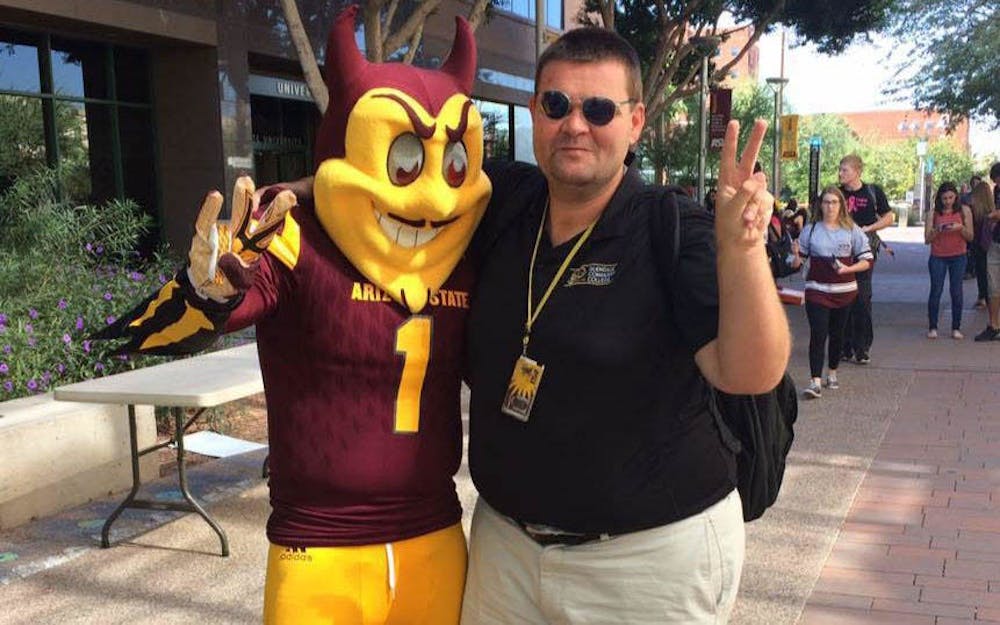For many college students, the best way to contend with rising costs of attendance is by applying for loans or grants. But for students who may need to take longer to finish their degree, such as those with disabilities, time limits on federal aid can hang them out to dry.
Only 29 percent of young adults with disabilities complete four-year college, according to a 2011 study from the National Center for Special Education Research.
Many factors contribute to these low numbers, but cost is often chief among them.
James Deibler, a public service and public policy senior, has high-functioning autism and said he has almost had to drop out of ASU because of the costs of his education.
Deibler is a recipient of the Pell Grant, need-based federal aid that does not need to be repaid. He used the grant to pay for his time at Phoenix College as well as part of his time at ASU.
Students eligible for the Pell Grant can receive the funding for up to six years. But that was not enough time for Deibler to graduate. He takes a lighter course load due to his disability, he said.
Deibler began working two jobs in order to afford his continued education. But that left him working too many hours, and he no longer qualified for disability benefits, he said, making it difficult for him to afford his studies. The Social Security Administration has strict requirements for who qualifies for disability, including that recipients "... cannot adjust to other work because of (their) medical condition."
"Congress needs to fix the problem so people with disabilities can graduate from ASU or other universities across the country," Deibler said. "I want to make a difference around the country for people with disabilities."
Deibler's GoFundMe page raised $19,854 in 23 months. He said he has been using this money to pay for his tuition. Now, Deibler said he also receives scholarships from the Disability Resource Center and the Sun Devil Family Association.
Read More: 'Overcoming Autism' at ASU: Student sets up GoFundMe account for higher education
Deibler's mom, Alina Deibler, said James has been motivated to attend school his whole life, dating back to before he started at Phoenix College.
"He stood in front of Phoenix College admission for weeks," she said. "They could not get rid of him, so they made him a student."
Alina said she believes the financial aid system "needs to be case-by-case" so these scholarships can benefit her son and others with similar problems.
ASU is doing what it can to help by connecting students with disabilities to scholarships specifically for people with their needs.
"There are opportunities for others to contribute to or establish new scholarships," Chad Price, director of education development and disability resources, said in a statement. "In the next couple of years, there will be a couple more scholarships that will be available as well."
Price said that the goal of the ASU Disability Resource Center is to ensure students with disabilities receive the same treatment as all other students at the University.
"The focus of the DRC is to ensure access to programs and services," his statement said. "As we work with students to ensure access, it levels the playing field, which allows students to progress through their programs at a comparable timetable as any other student."
There are programs the DRC has in place to help students with time-limited scholarships, but Price said the University has limited control over the constraints of the Pell Grant.
Melissa Pizzo, ASU assistant vice president for enrollment services, said that the University has scholarships for which students can apply if they run out of federal aid.
"If a student is no longer eligible for federal financial aid, ASU has private scholarships that a student can apply for to assist with any additional need," she said in a statement. "Students can also meet with a financial aid counselor to learn of all resources a student may be able to utilize in order to pay for college."
Ultimately, Price said ASU's goal is to see students graduate and succeed, regardless of their situation.
"Each student’s situation is different," he said. "There is not a one size fits all. The University will continue to look at ways to support a student. The support will come in a variety of ways, because the University wants students to succeed."
Reach the reporter at ajhowar6@asu.edu and follow @andrew_howard4 on Twitter.
Like The State Press on Facebook and follow @statepress on Twitter.




